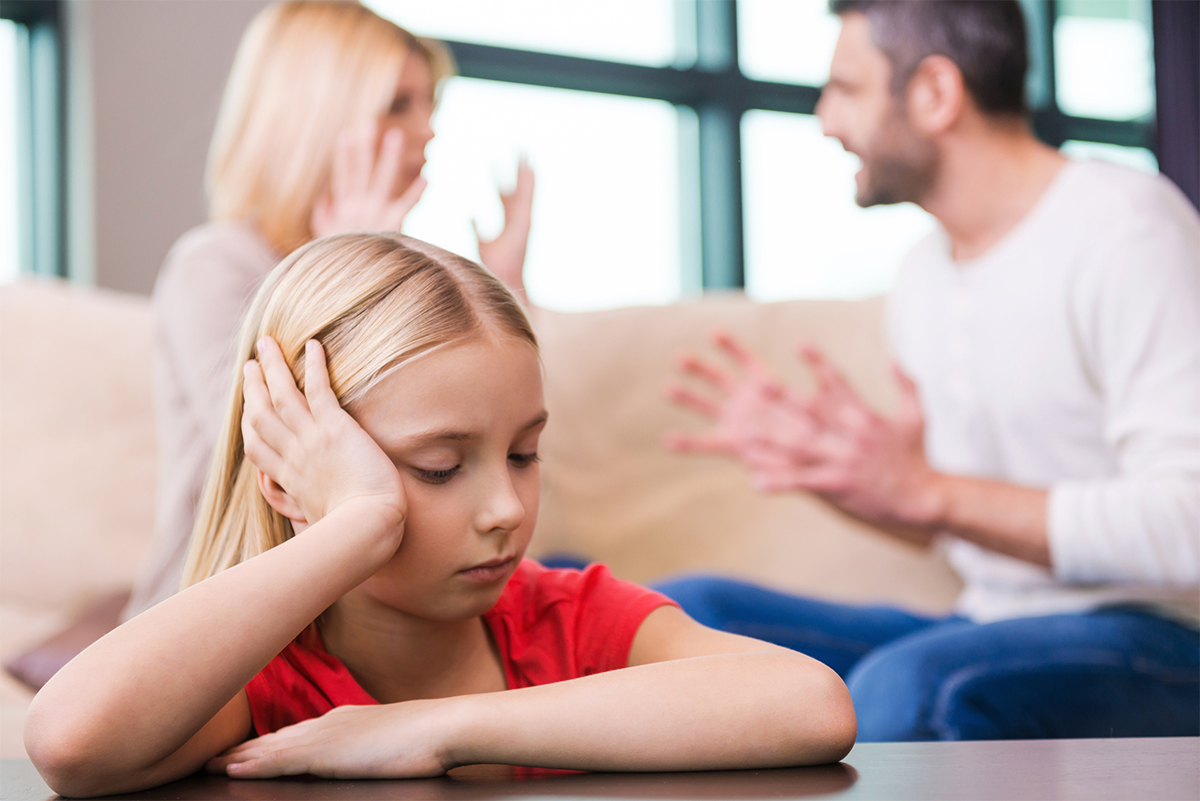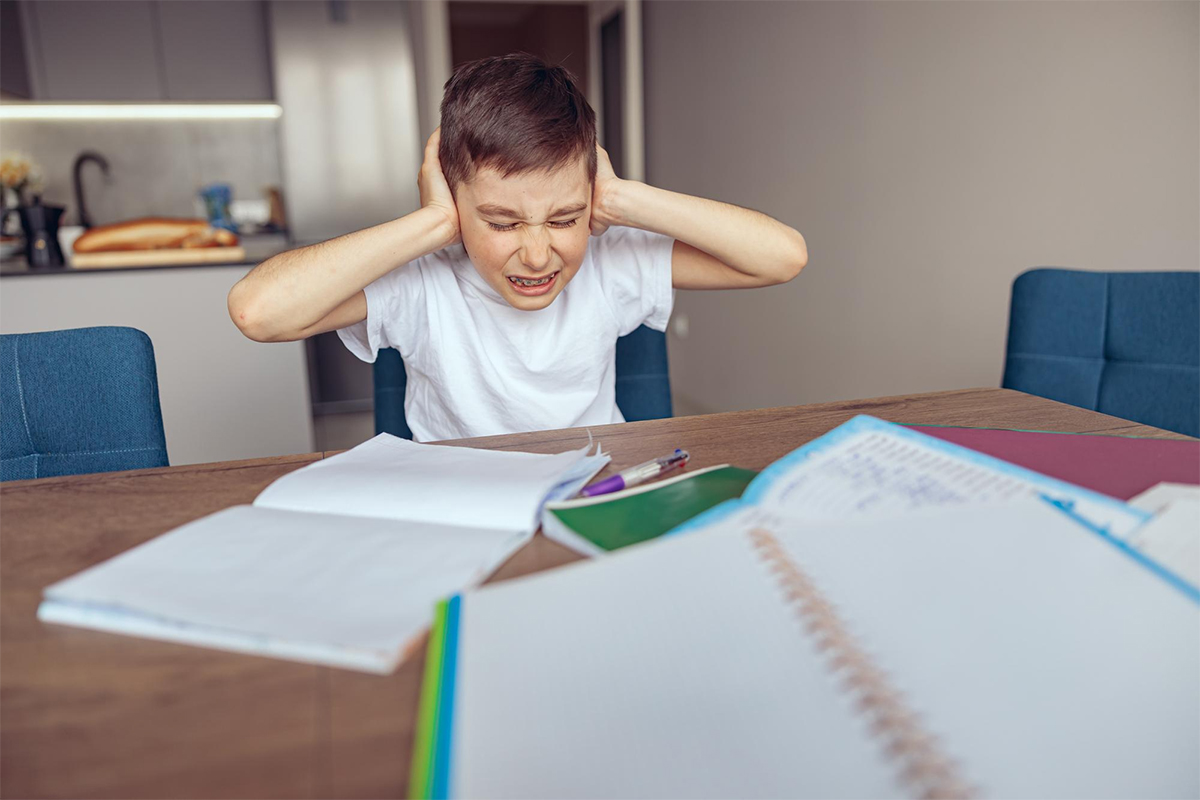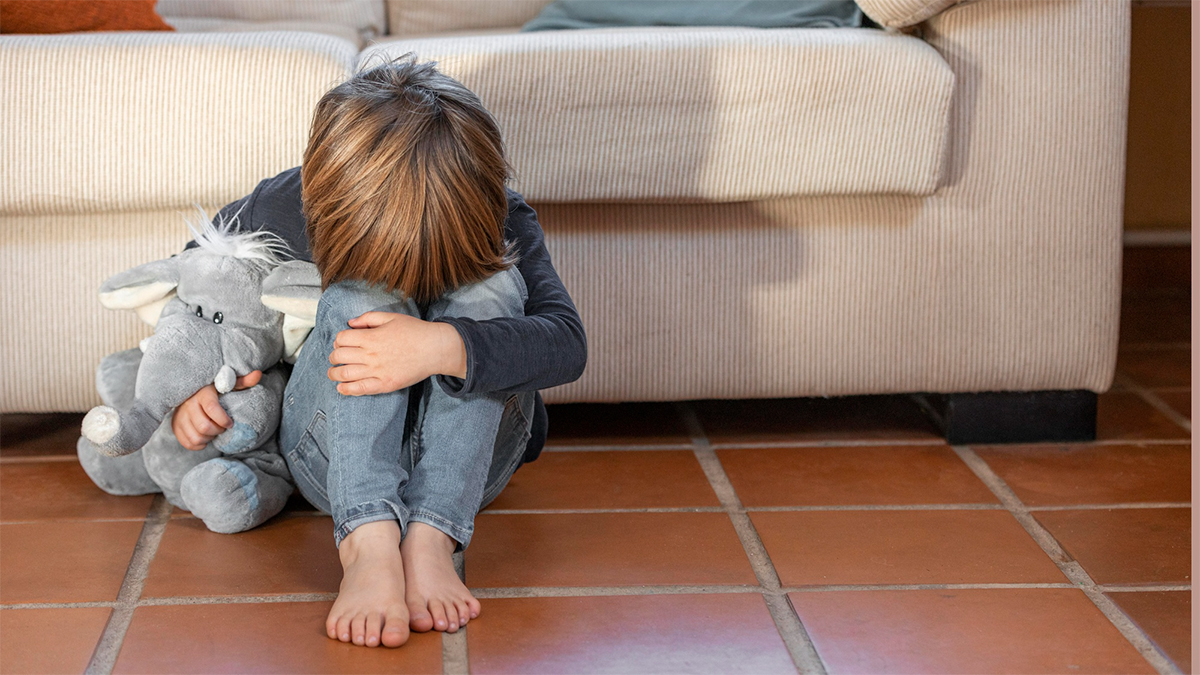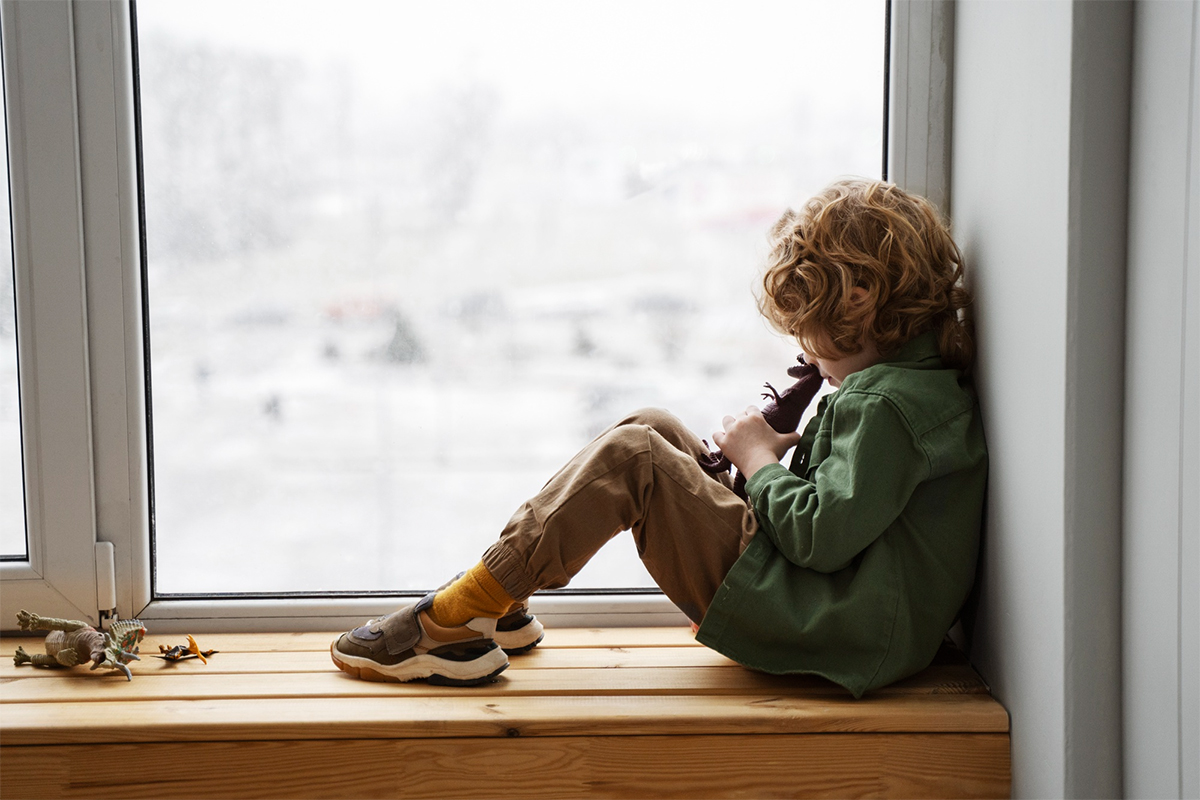Divorce Affects Children
Divorce is an unfortunate reality for many families, and its impact extends far beyond the couple involved. Children, in particular, are often the most vulnerable in these situations, bearing the brunt of the emotional and psychological turmoil that divorce brings.
One of the primary psychological effects of divorce on kids is an increased risk of emotional and behavioral problems. Children may experience feelings of sadness, anger, and confusion, which may manifest in various ways, such as social withdrawal, aggression, or acting out.
These emotional disturbances can persist long after the divorce is finalized, affecting the child’s overall well-being and ability to function optimally.
The conflict between parents during the divorce process can also take a toll on children’s mental health. Witnessing intense conflict, tension, and hostility can create a stressful and unstable environment for kids.
This chronic exposure to conflict can lead to increased levels of anxiety, mood issues, and antisocial behavior in children.
Divorce often involves a change in living arrangements, leaving the child with a single parent while the other may have limited visitation rights. This causes a reduction in contact with the other parent (often the father) and can trigger intense feelings of grief, loneliness, and a sense of being unloved or unwanted.
A child may blame themselves for their parent’s separation, which can negatively impact their self-esteem and overall sense of self-worth.
Therapy can provide a safe space for children to express their emotions, process their feelings of loss, and learn coping strategies to navigate the challenges that divorce brings.
Every year, more than 1 million American children experience divorce or separation of their parents. [1]
The First Year Is The Most Challenging
It is a time of significant adjustment and emotional upheaval, as the family dynamics undergo a major transformation.
Suddenly, children find themselves in a new living arrangement and a different routine. This can be disorienting and unsettling, leaving them with feelings of loss as they adjust to the physical separation from one parent and the reconfiguration of family life.
Family events, holidays, and special occasions may no longer be the same as before. Children may miss the sense of togetherness and unity they experienced during these occasions, adding to their feelings of sadness and loss.

Emotional Impact of Divorce
One of the most significant and long-lasting effects of divorce on children is the emotional impact it can have. Divorce is a life-altering event that can shake the foundation of a child’s sense of security and stability. The emotional turmoil experienced during and after a divorce can have lasting effects on a child’s mental health and overall well-being.
First and foremost, children of divorce may experience a sense of abandonment. The dissolution of their parent’s marriage can leave them feeling like they have been deserted or rejected. Children may struggle to understand why their parents are no longer together and may blame themselves for the break-up.
Divorce often results in major changes in a child’s daily life, including changes in living arrangements, schools, and social circles.
Effects On Academic Performance
The changes in living arrangements and routines, as well as the emotional stress they are experiencing, can make it challenging for children to concentrate and focus on their studies.
The tension and emotional turmoil within the family can distract children from their schoolwork, leaving them unable to fully engage in their academic responsibilities.
Some children may exhibit impulsive behavior, acting out in the classroom and struggling to follow rules and instructions.
The financial resources that may have been available previously, such as tutoring, extracurricular activities, or educational materials, may no longer be accessible after divorce. Providing additional support and resources to these children can help mitigate the negative impact on their educational performance.
Support may include individualized attention, family therapy, and academic interventions tailored to the child’s specific needs.
Maintaining open lines of communication between parents and teachers can facilitate a collaborative effort in supporting the child’s academic success. Sharing information about family dynamics and any significant changes occurring outside of school can contribute to a more comprehensive understanding of the challenges the child is facing.

Increased Likelihood of Dropping Out of School
One of the primary factors contributing to a higher dropout rate among children of divorce is the disruption in their family dynamics. The constant transitions and adjustments can be overwhelming, leaving the youth feeling unsettled and uncertain about their future.
Loss and feelings of abandonment experienced by many children of divorce can lead to a decline in self-confidence, making them more susceptible to developing a negative attitude towards education and their future prospects.
Constant exposure to family conflict can have a lasting impact on their well-being, leading to feelings as though they are helpless victims of their situation. Under such circumstances, school may not be seen as a safe haven or a place for growth and learning, but rather as an additional source of psychological distress and discomfort, further eroding their motivation to stay enrolled.
Financial strain may force children to contribute to the family income by seeking employment, diverting their attention and energy away from their studies, and increasing the likelihood of dropping out.
By addressing the underlying emotional, social, and financial challenges faced by children of divorce, we can help them overcome obstacles and achieve their full academic potential.
A 2010 study found that more than 78 percent of children in two-parent families graduated from high school by the age of 20. However, only 60 percent of those who went through a big family change — including divorce, death, or remarriage — graduated in the same amount of time. [2]

Mental Health Issues & Emotional Turmoil
The constant transitions between two households can leave a child feeling unsettled and unsure of where they truly belong. This lack of stability can trigger anxiety symptoms such as excessive worry, restlessness, and difficulty concentrating, all of which can impair their ability to function on a daily basis.
When parental conflict involves engaging in hostility towards each other, it can be extremely distressing for a child, often resulting in feelings of guilt, fear, or confusion.
This emotional turmoil can impact their overall well-being and may contribute to behavioral problems or difficulties in forming healthy relationships in the future.
The risk of developing mental health issues and experiencing emotional turmoil is further heightened when children have limited access to both of their parents.
In cases where one parent becomes the primary caregiver or physical custody is granted to one parent, the child may experience a sense of loss or separation from the non-custodial parent. This separation can trigger feelings of abandonment, sadness, and longing, intensifying their emotional turmoil and potentially impacting their mental health.

Heightened Anxiety Levels & Stress Symptoms
The uncertainty and instability that come with parental separation can trigger intense anxiety in children. Suddenly, their once predictable and secure family dynamic is shattered, leaving them grappling with questions about where they fit in and what their future holds.
Anxiety symptoms may include excessive worry about the well-being of each parent, fear of abandonment, restless nights, and difficulty concentrating on daily tasks or schoolwork.
Stress symptoms can also manifest as physical ailments such as headaches, stomachaches, and difficulty sleeping. The emotional toll of divorce can take a toll on a child’s physical health as well. They may experience changes in their appetite, altered sleep patterns, and a weakened immune system, making them more susceptible to illness.
Open and honest communication about the divorce and its impact on the family can help alleviate some of their anxiety. Maintaining consistency and stability in both households can provide a sense of security for the child.
Increased Sense of Rejection & Loneliness
The breakup of the family unit can leave children feeling like they are caught in the middle of an emotional tug-of-war. They may believe that their parent’s decision to divorce is somehow their fault, leading to a deep sense of guilt and self-blame. This internalized blame can exacerbate feelings of rejection and intensify their loneliness.
They may yearn for the love and companionship of their non-custodial parent, resulting in feelings of loneliness and isolation. The separation from one parent can disrupt the bond that was once so integral to their sense of security and attachment.
The absence of a stable family structure can hinder their ability to trust and connect with others, leading to a sense of alienation and isolation.
Assuring them that the divorce is not their fault and that they are loved and valued, can counteract the sense of rejection and alleviate their feelings of loneliness.
Encouraging regular visitation and facilitating opportunities for quality time with each parent can foster a sense of belonging and inclusion. Keeping family rituals and traditions alive, even in the midst of change, can also provide a sense of continuity and comfort.

Difficulty Expressing Emotions Openly
The upheaval and turmoil that often accompany the separation of parents can leave children feeling overwhelmed and unsure of how to navigate their complex feelings. Children of divorce may worry that their emotions will not be understood or taken seriously by others, including their parents.
This fear can lead to a reluctance to open up and share their true feelings, further isolating them in their own emotional world.
Increased Risk for Substance Abuse & Addiction Problems
Numerous studies have shown a link between parental divorce and an increased likelihood of children engaging in substance abuse behaviors later in life.
The disruption in family dynamics and the loss of a stable and secure home environment can create feelings of anxiety, depression, and anger. These emotional upheavals can lead children to seek refuge in unhealthy coping mechanisms, such as turning to drugs or alcohol to numb their pain or escape from their troubles.
Without guidance and support from both parents, children may seek validation and acceptance from their peers or external sources, including substances, as a means of filling the void.
Divorced parents may struggle to maintain consistent rules and boundaries, leaving children without clear guidance and structure. This lack of structure can make children more vulnerable to experimenting with substances and engaging in risk-taking behaviors.
Parents should be mindful of any changes in their child’s behavior, mood, or social circle. Sudden shifts in these areas can indicate possible substance abuse issues.
If parents suspect their child may be struggling with substance abuse, seeking professional help from mental health professionals or addiction specialists may be helpful.
Suicidal Thoughts or Ideation
Despite the growing awareness about mental health, the prevalence of suicidal thoughts or ideation remains a deep concern. Suicidal thoughts encompass a range of ideations, from fleeting thoughts to more persistent ones. They can manifest as intrusive fantasies or an overwhelming desire to end one’s life.
The reasons behind suicidal thoughts are diverse and often intertwined with complex mental health issues such as depression, anxiety, trauma, or substance abuse. These thoughts are signs of distress and not a character flaw or a personal failing.
The weight of these thoughts can affect daily functioning, including sleep patterns, appetite, concentration, and mood. An essential aspect of addressing suicidal thoughts is recognizing the need for support and reaching out to others.
Friends, family, and mental health professionals can provide the empathetic listening and guidance necessary to navigate this complex space. Mental health professionals play a pivotal role in assisting individuals with suicidal thoughts.
By creating an atmosphere that encourages open dialogue, compassionate listening, and destigmatization, we can collectively dismantle barriers to seeking help.

Risk-Taking Behaviors
Research has documented that parental divorce/separation is associated with an increased risk for child and adolescent adjustment problems, including academic difficulties (e.g., lower grades and school dropout), disruptive behaviors (e.g., conduct and substance use problems), and depressed mood. [3]
While some level of risk-taking can be seen as a natural part of personal growth and exploration, excessive or impulsive risk-taking can have detrimental effects on individuals’ well-being.
As teenagers navigate their way through this period of transition, they may engage in activities such as experimenting with drugs and alcohol, reckless driving, and engaging in unsafe sexual behaviors.
One of the primary concerns related to risky behaviors is the potential for injury or harm. Adolescents who engage in reckless driving, for example, are at a higher risk of accidents and fatalities.
Substance abuse can lead to addiction, impaired cognitive functioning, and long-term health issues. Engaging in unprotected sexual activities can result in unintended pregnancies and the transmission of sexually transmitted infections.
Education programs within schools and communities can raise awareness about the potential consequences of engaging in risky activities. Teaching effective communication and problem-solving skills can equip adolescents with the tools they need to make informed decisions and resist peer pressure.
Divorce can have a significant psychological impact on children, often resulting in adjustment disorders. The break-up of families can disrupt the sense of stability and security that children rely on for their well-being.
However, with the right support and resources, it is possible for children to navigate these challenges and ultimately move towards healing and returning to a sense of normalcy in their lives. Parents, educators, and mental health professionals can work together to address the unique needs of children affected by divorce, offering them the assistance and understanding they require to rebuild their lives and thrive despite the challenges they face.
If options have been weighed and divorce seems unavoidable, contact Sacks & Sacks law firm’s experienced divorce lawyers today and let them guide you through the divorce process with compassion and expertise.
Sources:
[1] Cohen, G. J., Weitzman, C. C., PSYCHOSOCIAL ASPECTS OF CHILD AND FAMILY HEALTH, C. O., DEVELOPMENTAL AND BEHAVIORAL PEDIATRICS, S. O., Yogman, M., Gambon, T. B., Lavin, A., Mattson, G., Rafferty, J. R., Wissow, L. S., Blum, N. J., Macias, M. M., Bauer, N. S., Bridgemohan, C., Goldson, E., & McGuinn, L. J. (2016, December 1). Helping Children and Families Deal With Divorce and Separation. American Academy of Pediatrics. https://doi.org/10.1542/peds.2016-3020
[2] 9 negative effects divorce reportedly has on children. (2015, February 26). The Week. https://theweek.com/articles/466107/9-negative-effects-divorce-reportedly-children
[3] D’Onofrio, B., & Emery, R. (2019, January 2). Parental divorce or separation and children’s mental health PubMed Central (PMC). https://doi.org/10.1002/wps.20590


